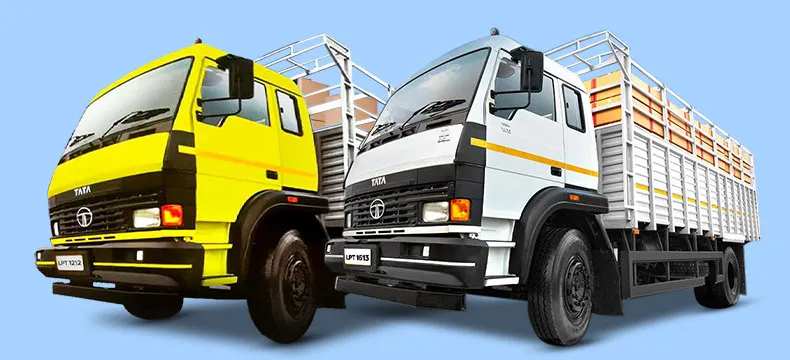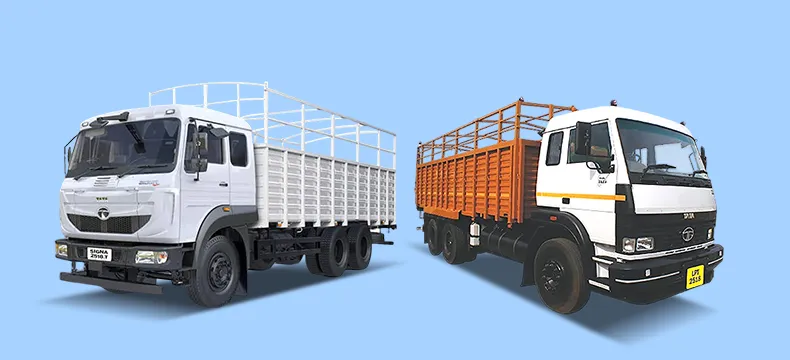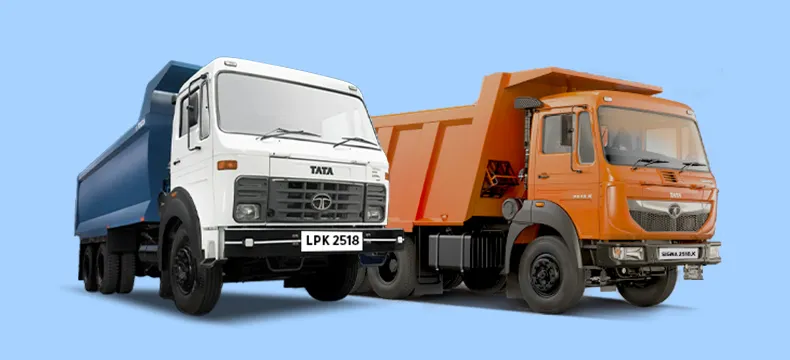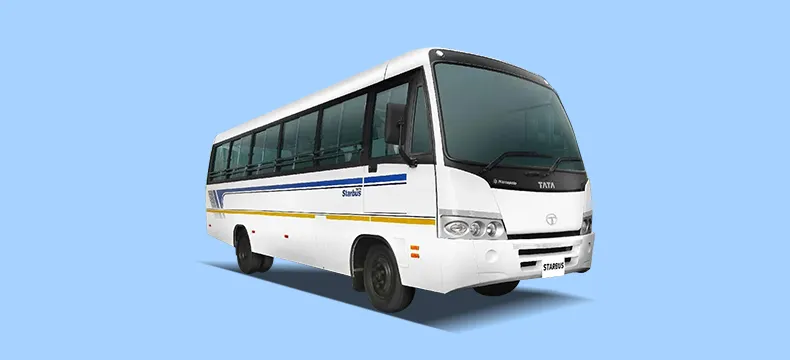11 Mar 2025

Road Transport vs. Rail Transport: Which is Better for Your Business in Bangladesh
- Tata Motors
- 6 Sep 2024
- Commercial Vechicle
Introduction
Land transport is broadly divided into two categories – road and rail. Meanwhile, railways and roadways, combined, form the lifeline of a nation. Choosing a mode of transport for your business can have a significant impact on your expenses, operations and deliverables. To make this critical decision, we must consider all important factors, including their benefits and drawbacks.
Individually, roadways and railways have their own merits and disadvantages. In this article, we will outline and highlight which mode of transport may be more suitable for your business needs.
What is Road Transport?
Road transport involves the use of motor vehicles like trucks, automobiles, and buses to move passengers and goods from one place to another. It is flexible and easy to access, making it a preferred option for most businesses. In Bangladesh, road transport plays a crucial role due to its extensive network of roads, freeways, and highways, which facilitates smooth travel over various distances.
What is Rail Transport?
Rail transport involves the movement of goods and passengers via trains. It is highly efficient for transporting large volumes over long distances. In Bangladesh, the extensive railway network connects cities and regions, offering a reliable option for bulk transportation.
Freight Traffic of Road vs Rail: Which is Better for Your Business?
For businesses in Bangladesh, road transport is a better option than railways. While rail transport has its merits, the versatility and widespread reach of road transport make it a top choice for many business operations. Freight traffic in Bangladesh is mostly handled by land transport. This mode is ideal for its door-to-door service, timing and schedule flexibility, and its ease of handling different kinds of cargo.
Advantages and Disadvantages of Rail and Road Transport
Let us see some important advantages and disadvantages of road and rail transport.
Advantages of Road Transport:
- Flexibility: Road transport offers unparalleled flexibility in routes and logistical schedules. Businesses can decide delivery times and locations by considering demand and traffic conditions.
- Accessibility: Road transport can reach rural and remote areas, allowing goods to be delivered directly to the doorstep of businesses or individuals.
- Speed: For short to medium distances, road transport is often the fastest mode. This is due to direct routes and efficient delivery processes.
Disadvantages of Road Transport:
- Traffic Congestion: Chaotic traffic conditions and peak-hour gridlocks could lead to unexpected delays.
- Environmental Impact: Road transport has a greater carbon footprint and is typically not fuel efficient.
Advantages of Rail Transport:
- Capacity: Rail transport can handle large volumes of goods simultaneously, making it cost-effective for bulk shipments.
- Energy Efficiency: Trains are typically more fuel-efficient than cargo trucks, leading to lower emissions and reduced carbon footprint.
- Reliability: Rail schedules are majorly less affected by weather. This ensures consistent and predictable transportation.
Disadvantages of Rail Transport:
- Inflexibility: Rail transport lacks route flexibility and has limited access points. Businesses may need to hire trucks to transport goods from railway stations to remote or rural areas.
- Strict timelines: Cargo deliveries must adhere to railway schedules, with limited options for changes, adjustments, or urgent deliveries.
| Aspect | Roadways | Railways |
| Route Flexibility | High flexibility reaching rural and remote areas | Limited to fixed stops |
| Delivery Speed | Faster for short and medium distances | Ideal for long distances |
| Accessibility | Doorstep Delivery | Limited to locations that have rail infrastructure |
| Environmental Impact | Higher Emissions | Energy efficient and lower emissions |
| Capacity | Standard capacity, suitable for diverse goods | Large capacity, ideal for bulk goods |
| Traffic Congestion | Affected by traffic congestion | Rarely affected by traffic conditions |
Ideal Options for Cargo Trucks in Bangladesh
While rail transport excels in moving bulk goods over long distances, cargo trucks offer superior flexibility and accessibility. This makes trucks an ideal choice for businesses needing efficient and adaptable logistics solutions. Based on our analysis, Tata Motors trucks are ideal for transporting cargo in Bangladesh. The two cargo trucks to consider are the Tata Motors LPT 1212 and LPT 1613. Both the Tata Motors LPT 1212 and LPT 1613 have an individual tonnage capacity of 12T – 16T.
Tata Motors LPT 1212 MAX
- The Tata Motors LPT 1212 MAX is a powerhouse cargo truck that is fuel-efficient, dependable and sturdy. It is powered by a high-performing, technologically advanced, powerful water-cooled direct common rail injection diesel engine. With its impressive torque of 400 Nm @ 1300-1600 rpm, the cargo truck, despite its weight and build, is a powerful vehicle and yet fuel-efficient.
- Robust suspension makes it a superior choice for roads in Bangladesh. It is equipped with 6+1 tyres, which are 9.00 R20-16PR (radial tyres), making this cargo truck powerful and reliable even when it carries cargo at full capacity. Businesses can use it for construction, cement, mining, and FMC goods. Tata LPT 1212 has a sophisticated brake system, seamless gearbox, and robust suspension, making it a superior choice for roads in Bangladesh. Equipped with 6+1 tyres, which are 9.00 R20-16PR (radial tyres), this cargo truck is powerful and reliable even when it carries cargo at full capacity. Businesses can use it for construction, cement, mining, FMC goods and perishable items. LPT 1212 Max effortlessly completes all tasks with efficiency and ease.
Tata Motors LPT 1613
- The Tata Motors LPT 1613 is a heavy-duty cargo truck known for its maximum efficiency. Loaded with a powerful 697/TC IC water-cooled dirt injection turbo-charged diesel engine, it is the ultimate commercial vehicle on any road. It also boasts an impressive torque of 490 Nm @1500 rpm and 136 hp, which translates into the truck's fuel efficiency that directly increases profits, making the Tata LPT 1613 a sound return on investment. It is also known to have the highest ground clearance in its class, making it suitable for all terrains.
- It is an ideal choice for business and logistic operations in Bangladesh. It is a cargo truck that is fuel-efficient, cost-effective and has customisable configurations. LPT 1613 can effortlessly handle the most demanding loads on challenging terrains, making it one of the best choices for roads and traffic. Its power, reliability and versatility have the potential to revolutionise cargo operations in Bangladesh.
Investing in Tata Motors cargo trucks, such as the LPT 1212 MAX and LPT 1613, is an excellent choice for optimising your roadway transportation and logistics operations. Unlike railways, which can be limited in flexibility and access, these trucks offer superior adaptability, allowing you to navigate diverse road conditions and reach remote areas directly. This flexibility ensures timely and efficient delivery of goods, making them a superior option for dynamic and varied logistical needs.
FAQs
What is the difference between road transport and rail transport?
Road transport utilises vehicles such as trucks and cars to travel on roads, while rail transport uses trains that run on tracks. Road transport, exemplified by Tata Motors' versatile range of cargo trucks like the LPT 1212 MAX and LPT 1613, offers superior flexibility. These trucks can navigate diverse routes and reach remote areas directly, making them ideal for dynamic logistical needs. In contrast, rail transport is better suited for moving large volumes of goods over long distances but lacks the flexibility and access provided by road transport.
What is the disadvantage of rail transport?
Rail transport's main disadvantage is its limited flexibility in routes. Trains can only travel along fixed tracks, which restricts access to certain areas. This lack of route adaptability means that businesses often need to use additional transportation methods to reach remote locations.
What are the advantages of road transport?
Road transport offers several advantages, particularly with Tata Motors' range of cargo trucks. These trucks provide significant schedule flexibility, enabling businesses to adjust delivery times and routes based on real-time conditions. They are also well-suited for speedy deliveries over short and medium distances and can reach remote and rural areas that may not be accessible by rail. Tata Motors' trucks, such as the LPT 1212 MAX and LPT 1613, are designed to meet these needs efficiently, making them an asset for logistics and transportation operations.
- Tags





















